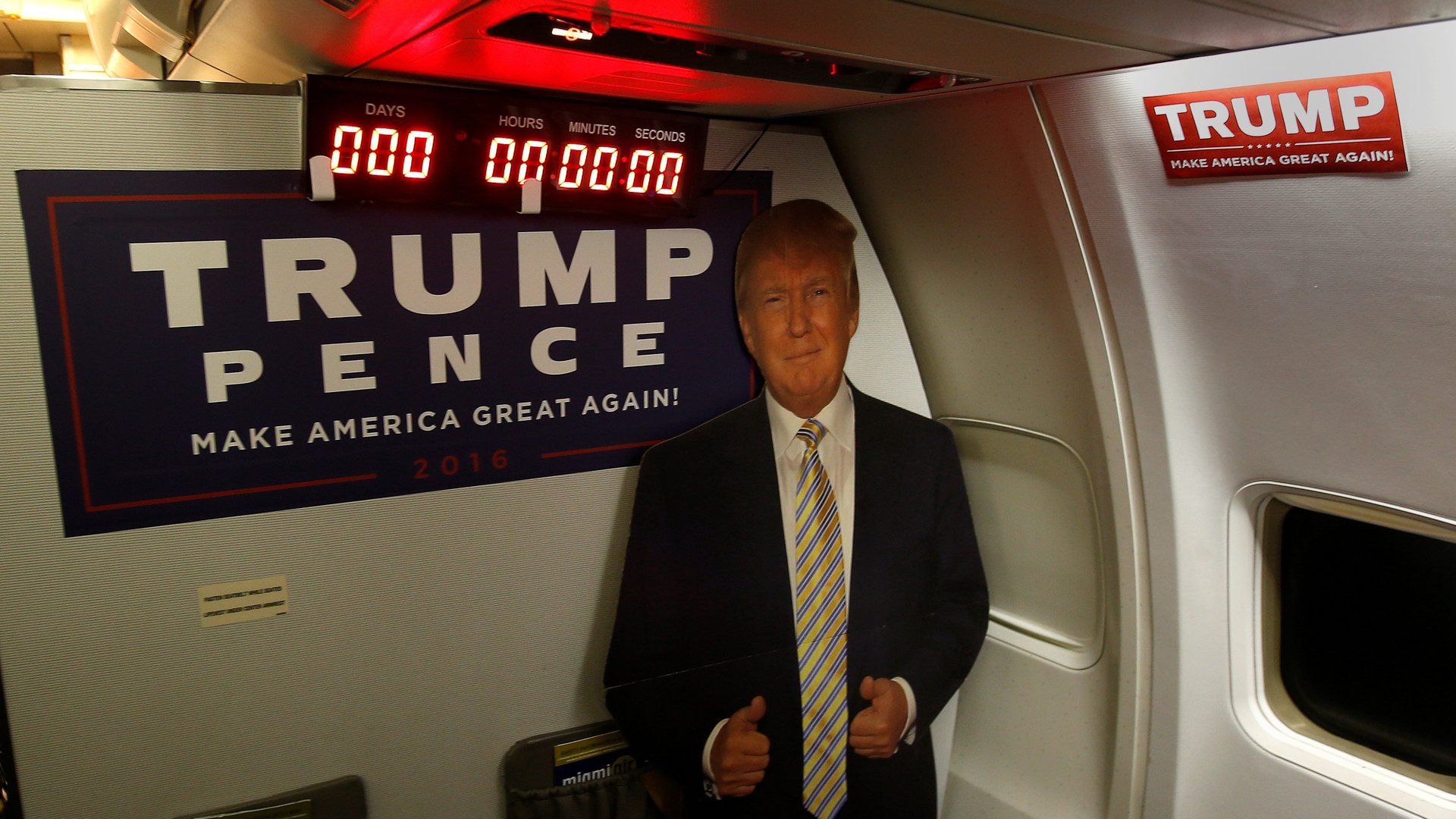A last chance to-do list to help you prepare for a Trump administration
Donald Trump’s ambitious plan for his first 100 days as US president includes a series of measures against immigration, Obamacare and environmental protection. Although it is unclear which of these changes will actually be implemented after his inauguration on Jan. 20, US residents who have benefitted from the Obama administration’s policies might consider planning a few steps ahead to take advantage of them for as long as possible. Here are some ideas:


Donald Trump’s ambitious plan for his first 100 days as US president includes a series of measures against immigration, Obamacare and environmental protection. Although it is unclear which of these changes will actually be implemented after his inauguration on Jan. 20, US residents who have benefitted from the Obama administration’s policies might consider planning a few steps ahead to take advantage of them for as long as possible. Here are some ideas:
1. Get an IUD
Outgoing president Obama’s signature Affordable Care Act currently requires health insurance companies to cover contraception for women, but Trump has both vowed to repeal the law and claimed he would keep certain unspecified parts of it. Women: If contraception coverage is cut, the Intrauterine Device (IUD) ($500 to $900) will last you 3 to 9 years—longer than a presidential term.
2. Get preventive care from Planned Parenthood
Non-profit organization Planned Parenthood currently offers a variety of health care services to both genders in the US, either for free or at a low cost. But the organization has long fought an uphill battle against conservative politicians who threaten to defund its operations. Before it faces funding cuts again, women might consider availing themselves of services from pap smear tests to breast cancer screening, while men can get colon, prostate and testicular cancer screenings and vasectomies, as well as general health care.
3. Sign up for health insurance
More than 100,000 people reportedly rushed to enroll in health plans the day after the US presidential elections, for fear that the new president would repeal the Affordable Care Act. If you are not already covered by an employer-sponsored plan, you can sign up for one now at HealthCare.gov and even apply for subsidies. Enrollment for 2017 closes by Jan. 31.
4. Apply for an H-1B visa
On the campaign trail, Trump has explicitly vowed to end the H-1B work visa program, which allows skilled workers to be employed in the US for up to 6 years. H1B visas are awarded at the discretion of the Department of Homeland Security. If you are thinking of applying for this visa to live and work in the US, it doesn’t hurt to act now.
Yoana Kuzmova, immigration law lecturer from Boston University, explains that the government has the power to lower the current limit of 85,000 visas. Visas that have already been issued would not be cancelled unless the visitor obtained it by fraud or committed a serious crime, she says, but the government could also lower the legal threshold as to what becomes a deportable offense.
5. Apply for a green card
Trump’s main target has been illegal immigration, but he’s also promised to keep legal immigration down. That could mean anything from halving the number of green cards available to a temporary freeze on issuing permanent residency. Permanent residency and citizenship are both granted at the discretion of US Citizenship and Immigration Services.
Green cards can be canceled if they were obtained by fraud or if the holder only has conditional permanent residency, says Kuzmova, but once you apply to be naturalized as a citizen, the government must grant naturalization according to whatever law was in place at the time of application.
6. If you’re Mexican, apply for a visitor visa
One of Trump’s key campaign points is to make Mexico pay for a US-Mexico border wall. To do so, his policy statement claims he’ll raise visa fees for Mexicans visiting the US. It’s unclear how much the raise would be, but save money by applying for one now if you plan to visit the US next year.
7. Wire money abroad
Another part of Trump’s plan to make Mexico pay for the wall is to threaten Mexico with a halt on remittances. Based on his unsupported claim that the majority of remittances to Mexico are sent by illegal immigrants, Trump has proposed expanding financial regulation definitions so that only lawful residents of the US can wire money abroad. Although the National Review has pointed out that the move seems impractical and might violate international agreements with the US, better safe than sorry.
8. Apply for federal government grants
The US federal government currently offers thousands of grants related to the environmental conservation, climate and energy research that non-profit organizations, small businesses, and individuals could apply. Trump is openly skeptical of climate change, so apply for these grants while the money is still available. Many deadlines fall before Trump’s Jan. 20 inauguration day.